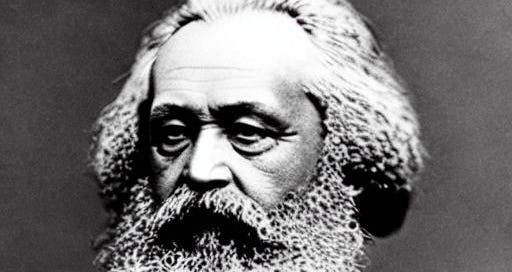By
For this week's Anti-Woke Book Club segment, which appears every Monday at 4:50pm on the Richard Syrett Show on Sauga 960 AM, I have chosen a speech given by James Lindsay. From the description given of the video of Lindsay’s speech (embedded below):
On March 29, 2023, James Lindsay delivered a short address before a conference at the European Union Parliament in Brussels, Belgium. This speech has been widely recognized as making the nature of the Neo-Marxist Cultural Revolution engulfing the West extremely clear, with a sharp warning to Europe not to follow in the footsteps of the Anglophone countries. In the two months since, this speech has gone viral and received incredible praise and feedback for its clarity and ability to articulate the true nature of the so-called "culture war" or "Woke" phenomenon threatening the West.
The first paragraph of James Lindsay’s Wikipedia page is consistent with the long tradition of stigmatizing those who research and write about Communism - which today has been rebranded as Wokeism for a modern Western audience - as “conspiracy theorists.” Evidence of this can be found in the first paragraph of Lindsay’s Wikipedia entry:
James Stephen Lindsay (born June 8, 1979), known professionally as James A. Lindsay is an American author, cultural critic, mathematician and conspiracy theorist. He is known for the grievance studies affair, in which he, Peter Boghossian and Helen Pluckrose submitted hoax articles to academic journals in 2017 and 2018 to test scholarship and rigor in several academic fields. Lindsay has written several books including Cynical Theories (2020), which he co-authored with Pluckrose.
The Grievance Studies Affair is something I will be bringing to a future segment of the Anti-Woke Book Club, and Cynical Theories is an important work that we have previously discussed. Since its publication in 2020, Lindsay has published two more essential books that delve into the Marxist roots of Wokeism - Race Marxism: The Truth About Critical Race Theory and Praxis and The Marxification of Education: Paulo Freire's Critical Marxism and the Theft of Education. Both of these books are soon to be featured in the Anti-Woke Book Club.
If any readers missed the essay I published on Sunday by Chris Whitehead, it is highly relevant to todays topic, so be sure to read it - Chris explores aspects of Lindsay’s analysis not covered today.
Lindsay’s talks are always full of ideas and he moves quickly through them. The 28-minute speech covered today is no different than what those familiar with his work would expect. There is an abundance of substantial content with the potential to overwhelm the listener. That is why I decided to write this short essay and highlight a few key takeaways from this extraordinarily enlightened speech.
It begins with a definition of Equity:
“An administered political economy in which shares are adjusted so that citizens are made equal.” - George Frederickson
Lindsay asks, where have we heard this before?
He explains that the difference between socialism/communism and equity is the type of property being redistributed. Under equity, the redistribution is social and cultural capital, in addition to economic and material capital.
Proclaiming that “Woke is Marxism,” Lindsay spends the rest of the speech filling in the details concerning the specific brand and application of Marxism currently driving the woke cultural revolution in the West. If we Consider wokeism as a cultural Marxist revolution, then it is logical to make the comparison with the Chinese cultural revolution, a comparison Lindsay makes clear when he states that “Woke is Maoism with American Characteristics.” From here we make note, as evinced in Chinese revolutionary history, of Mao’s Marxist-Leninism with Chinese characteristics. And of course, the direct relational line between the Chinese cultural revolution and the Woke cultural revolution is the intense weaponization of identity politics.
Lindsay brings in a useful analogy by describing Marxism as a genus of ideological thought. At the top is Marxism (the genus), and below are various “species” of Marxism. For example, Classical Economic Marxism is a species, so is Radical Feminism, Critical Race Theory, Queer Theory, and Post Colonial Theory. All of these species of Marxism are bound together through Intersectionality, which “makes them treated as if they were all one thing, but the logic is Marxist.”
Lindsay proclaims that it is not true that Marx’s work, ie. books like Capital, were talking about economic theory. Only on the surface they were. Below the surface, Marx’s hypothesis was that we must seize the means of production if we’re going to bring socialism to the nations of the world.
However, an essential point of discernment is that when Marx writes of production he is not just referring to economic and material production, but of social and historical production, the means by which man produces himself. Marx was a philosopher not an economist. The reason he wrote so much about economic class and industrial production was because he felt the economic and material conditions present in his lifetime (the industrial revolution) were robbing man of his true nature: that of a social being (a socialist).
Marx claimed that he had produced the first scientific theory of history (historical materialism). That history was produced by man’s activity, and that man’s key activity was economic. What Marx called the “inversion of praxis,” was what he described as economic production producing the goods and services of the economy, along with producing society itself. And society in turn, producing man.
“Seizing the means of production means how we construct who we are as human beings so that we might complete ourselves, and complete history.” - James Lindsay
As Lindsay points out, Marxism is a genus that is highly adaptable to economic, material and cultural conditions of the times and places where it spreads, like an ideological virus. In order for Marxism to work in China in the 1960s, it was given what Mao called Chinese characteristics. Mao adapted Marxist-Leninism to the socio-economic and cultural conditions of China, in the same way the modern progressive left has infused American or Canadian or Australian characteristics. Wherever the Marxist genus goes (all Western democracies) there will be Marxist activists ready to inject the local characteristics and help build the bridges connecting their comrades similarly engaged in Marxist struggle all over the world. Because, it's important to remember, that ever since the first Marxist revolution in early 20th century Russia, it has been an international movement.
Expanding on Marx’s theories, Lindsay explains how Marx believed that at the end of history, when the communist utopia was achieved, man will have remembered that he is a social being with no need for private property. Marx said that “communism is the transcendence of private property as human self-estrangement.”
Marx argued that under ideological capitalism, economics becomes a vehicle to separate society into a bourgeois class with access to property, who oppress the underclass (working class proletariat) who don’t have access to property. The oppressed proletariat must take on a revolutionary consciousness in order to transform society into socialism, or, to frame it within the context of the current Western cultural revolution, to transform society into equity.
Lindsay cites Cheryl Harris’s 1993 article where she wrote of “whiteness as property,” explaining that white privilege constitutes a kind of cultural private property that must be abolished in order to have racial justice. This line of thinking is part of what fused Marxism with race relations to give us Critical Race Theory. Here Lindsay cites Marx’s Communist Manifesto where it says that communism can be summarized in a single sentence: the abolition of private property. Under Critical Race Theory (a species of the Marxist genus) the single summarizing sentence becomes: the abolition of whiteness.
Lindsay explains that the revolution's goal is to “awaken a racial class consciousness that will organize a struggle to seize the means of cultural production, so that white cultural production is no longer the dominant mode.”
It is important to note that underlying all of Marxist ideas is his Conflict Theory. Marx was a supremely cynical person who did not seem to consider the possibility that there could be harmony, without first a transformative revolution, among the different groups that make up society. Marx’s theory sees certain groups locked in perpetual conflict. In feminism the conflict is between men and women, in Queer Theory the conflict is between “heterosexuals who control the cultural property that determines who is considered normal, and who is a freak or pervert, a.k.a queer.”
Under Post Colonial Theory the conflict is between the West, “the oppressor with access to the material and cultural wealth of the world, who controls the dominant mode of Western cultural reproduction - colonizing the world. The oppressed are the Natives of the world who must band together to decolonize” this dominant mode.
I will end with one final note, a relevant quote from Lindsay’s speech, “Marxism is a way of thinking about the world, and the goal is always to seize control of the means of production of man and history in society. Marx believed it would be through economic means, now it's through socio-cultural means.”
___
Thanks for reading. In case you missed last week, here is Volume 1 of the Anti-Woke Book Club - The Origins of Socialism. And since the Anti-Woke book club mostly explores the research bibliography of Mr. M and James Pew’s collaborative project, here is a post which indexes all of the essays of the Great Illiberal Subversion essay series.
There are now two ways to support Woke Watch Canada through donations:
1) By subscribing to the paid version of the Woke Watch Canada Newsletter for - $5 USD/month or $50 USD/year
2) By donating to the Canadian School Board Investigation fund, which is raising money to expand Woke Watch Canada’s research and investigation into dysfunctional Canadian school boards.






Its been a real disappointment to see how Wikipedia has been coopted and politically weaponized over the past five years. I'm a huge fan of James Lindsay. The Grievance Studies Affair was both hilarious, and really instructive.
Marxism is essentially a "framework" used to think about politics, society, etc., and mobilize people based on various general calls to eliminate injustice (Marxists often specifically use the term "framework").
The details and specific claims are malleable, which is why Marxism adjusts so well to different societal/political contexts and keeps giving its proponents this veneer of plausible deniability (what you just labeled as Marxism is really not!)